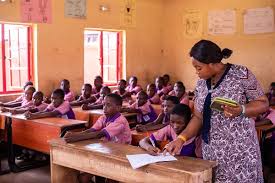The Minister of State for Education, Dr. Yusuf Sununu, lamented that massive investments in the nation’s basic education sector have not translated into desired results. It is the glory of a nation to have an effective and productive education system. Education is the bedrock of the society, hence the need to ensure its sustainability.
Statistica reports that in 2018/2019, around 7.4 million students were enrolled in junior secondary schools. The age for junior secondary schools in Nigeria is 12 to 14 years. In 2019, the total number of students in both private and public schools was approximately 4.9 million. Based on Statistica, the basic education is the level of education that has the highest number of enrolled students. It is accessable and affordable by all irrespective of social class, gender, race or other affiliations.
UNICEF reports that there are around 18.5 million out-of-school children in Nigeria. It is a significant rise compared to the 10.5 million recorded in 2021. UNICEF also states that one out of five children from Nigeria does not attend school. This raises the need for government at all levels to act fast in resolving the undesirable situation. The minister said the investment so far in education is extremely commendable but the output is not commensurate. Therefore, there is the need to do something about that.
He said, “It is really disheartening that despite the federal government’s huge investment, interventions and technical support, the basic education sub-sector is still bedevilled by these unpleasant occurrences: learners sitting on bare floors, high rate of drop-outs, increased number of out-of-school children, poor infrastructure, dilapidated classroom buildings, inadequate learning facilities, unqualified teachers, inadequate monitoring, inequitable access and low learning outcomes which have resulted to the falling standard of education in our country”.
In response to these challenges, the minister said, “The SUBEB chairmen must also ensure that every child in their respective state benefits from the free, universal and compulsory basic education, regardless of sex, ethnic or religious backgrounds, language or status as this will reduce the out-of-school children syndrome”.
According to UNICEF, In the North, the picture is even bleaker, with a net attendance rate of 53 percent. Gender, like geography and poverty, is an important factor in the pattern of educational marginalisation. States in the North-east and North-west have female primary net attendance rates of 47.7 percent and 47.3 percent, respectively, meaning that more than half of the girls are not in school.
The education deprivation in Northern Nigeria is driven by various factors, such as economic barriers, religion, socio-cultural norms and practices that discourage attendance in formal education, especially for girls. The activities of insurgents have also contributed greatly to this phenomenon.
There is, therefore, the need for new strategies and collaborative efforts between the federal and state governments to address the problems so as to ensure that basic education in Nigeria yields desired results.
Abubakar Adamu,
Mass Communication Department, University of Maiduguri, Borno state




